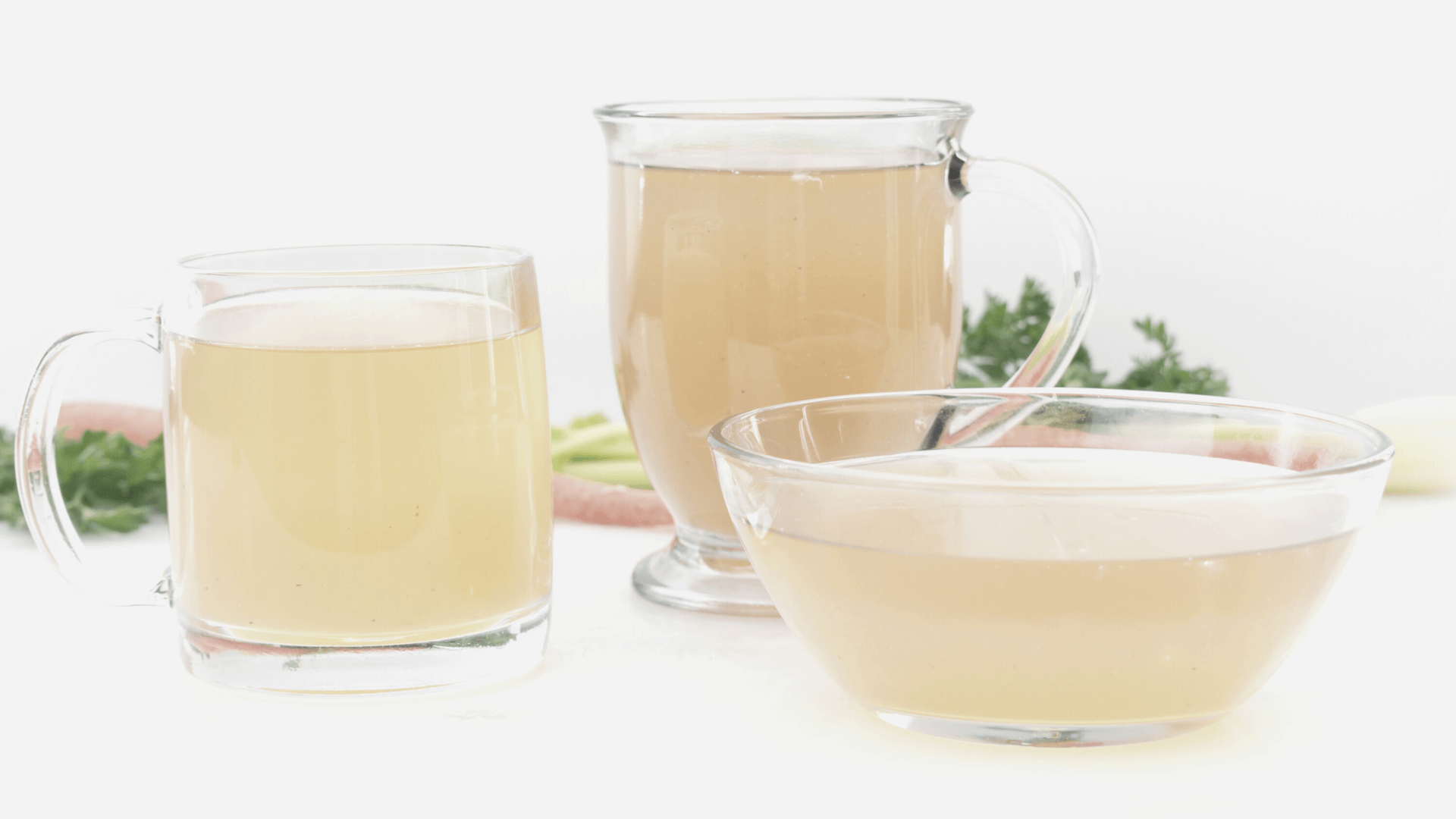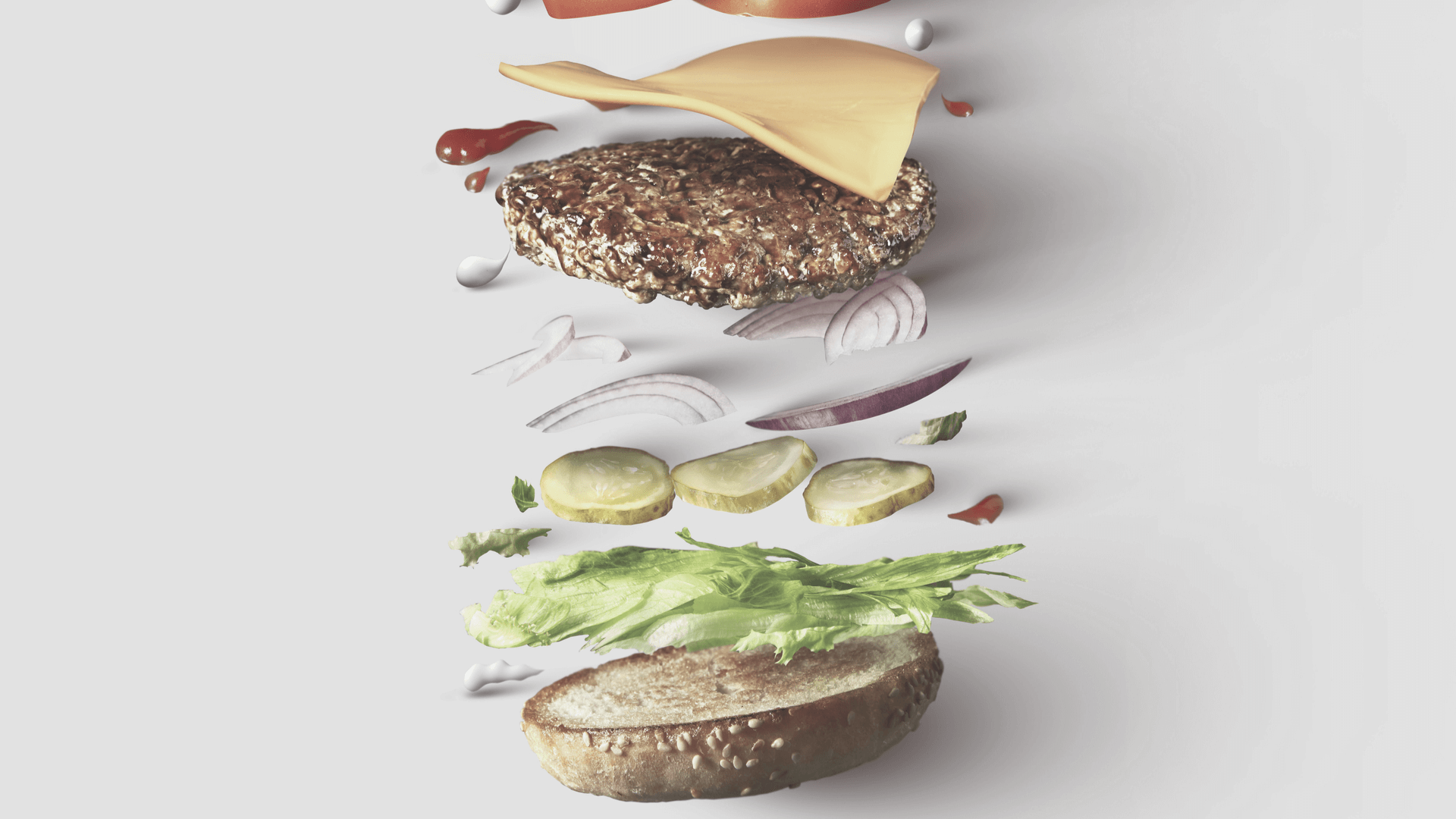What if this was the year when you finally did food tracking for health and wellness vs weight loss?
Because, news alert, if you need to lose weight, then tracking your food for health and wellness will see you to that weight loss without making drastic (non-sustainable) changes.
Is Tracking Food Healthy?
Yes and no.
No, Tracking Food is Not Healthy
The way I started tracking food was not healthy.
You want to see some of those journal entries?
Click HERE to peruse.
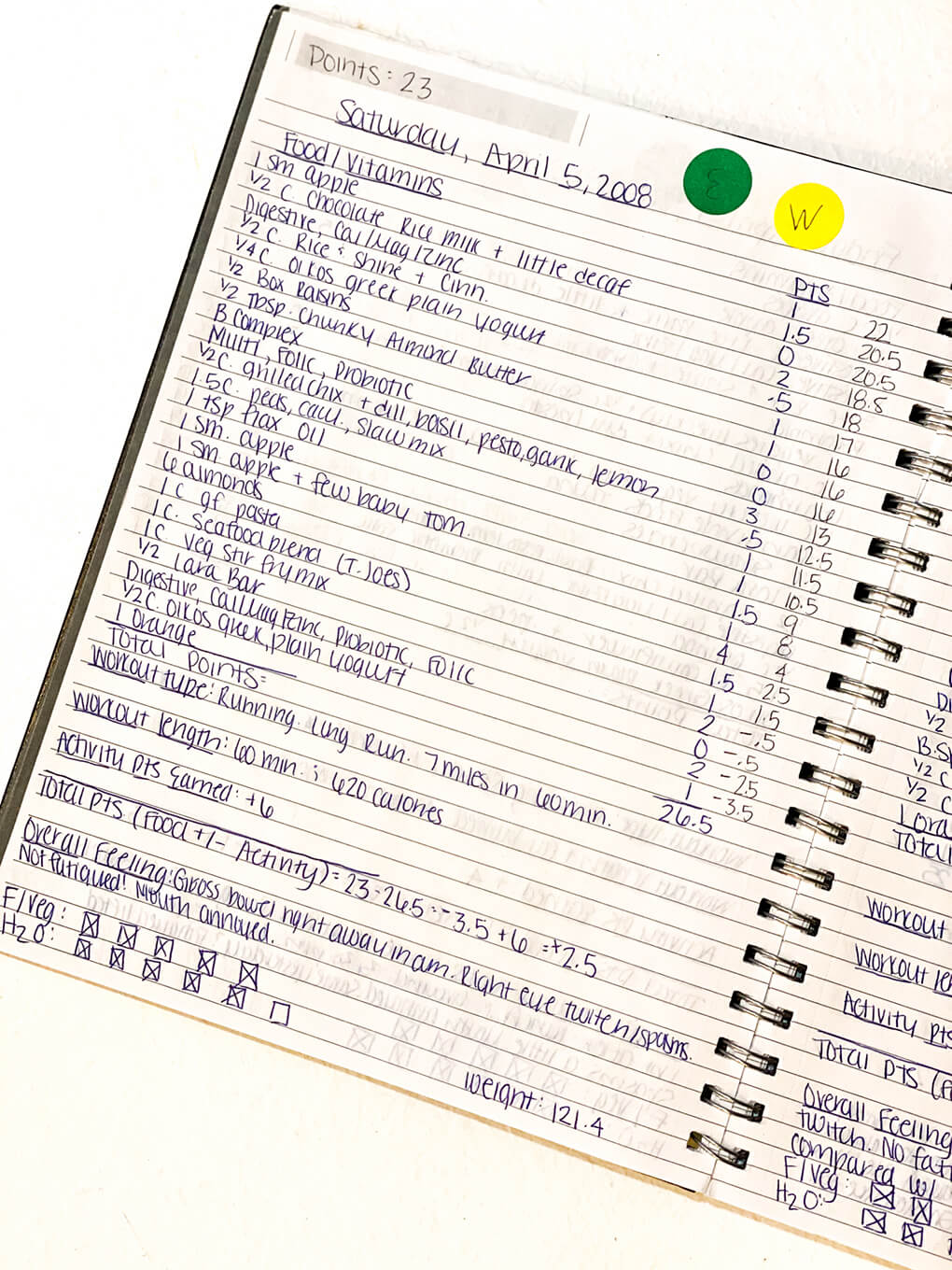
It was based on eating as much food as possible for the lowest amount of Weight Watchers points.
The goal = lose weight, look good in my wedding dress; thin is the win.
But the problem?
Rarely did I eat for overall health and wellness and what I needed back then.
Many days I was eating low-point straight junk like fat-free, sugar-free puddings, candies, beverages, snack cakes, and more.
In these regards, tracking food was anything but “healthy.”
So today when I hear about people keeping food journals, I can’t help but suspect that it’s not working for them in the way they want it to.
Yes, Tracking Food is Healthy
Then again, it can absolutely be healthy.
I mean, first you need to be clear about what health truly means to you.
For me, it means digestion on point, energy high, numbers in check, scopes clear, and mood stable.
So if you’re tracking food in order to achieve this that means you’re not just counting fat and calories (if at all).
Instead, your tracking things lifestyle habits and ingredients vs ingredient(s).
Food Tracking Journal
Click HERE to save this post for later.
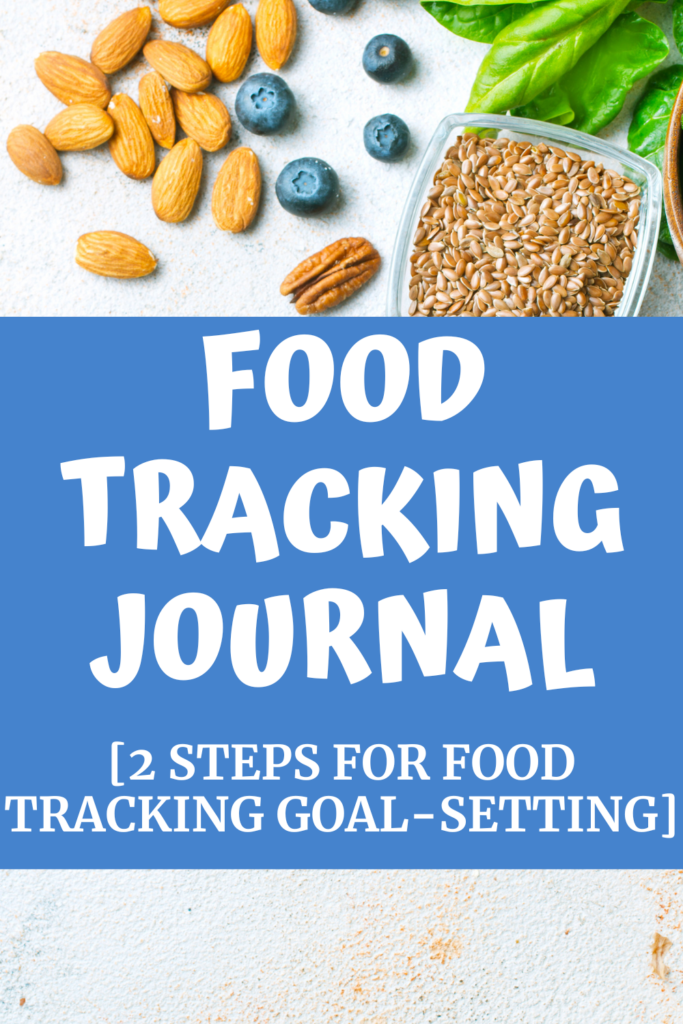
So let me take you through how to participate in food tracking for health and wellness.
2 Steps for Food Tracking Goal-Setting
1. Weight loss goal
I’m putting this step first because, let’s be really honest here…..despite needing to heal your gut or living a general healthier lifestyle, you might have your primary goal set for weight loss.
There is no shame in having a weight loss goal, no matter what anyone says.
My caution with it, though, is that usually weight loss and gut healing are conflicting goals.
If you want go about it the right way, consider my 21-Day Quick Gut Detox which focuses on the gut and thus, if you have bloat and/or weight to lose, it’s much more likely to naturally fall off.

2. Understand exactly why you are tracking your food
If weight loss is not the main goal, then understand exactly why you want to track your food.
Here are some sound reasons from a health and wellness perspective:
- To understand caffeine and/or alcohol consumption
- Food as it relates to your menstrual cycle and/or acne
- How and what food(s) are affecting your mood?
- Food(s) you are intolerant to
- What foods are giving you the best Bristol Stool Scale number?
- Are there certain foods that are keeping you up late or waking you in the middle of the night?
- Do some foods make your joints ache?
- Is there a set of foods that give you a lot of energy and/or strip that energy away?
Now you know your goal for the health and wellness result you’re after.
Depending on what your goal is, you’ll be tracking various thing in the food journal.
What Do You Track in a Food Journal?
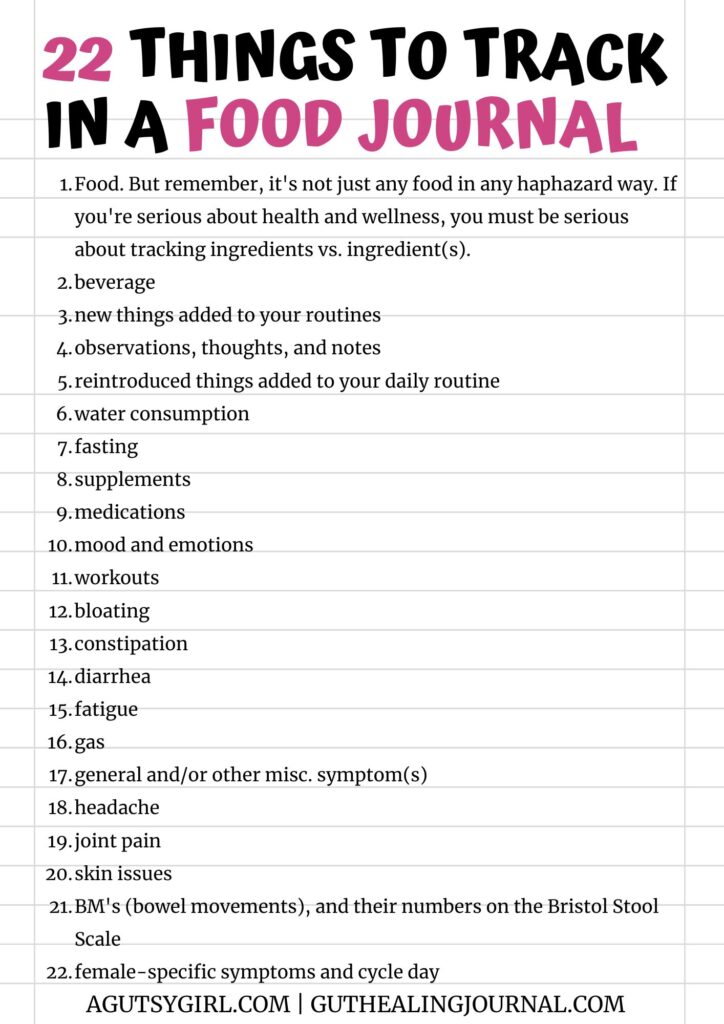
Here is a list of 22 things to track from a health and wellness standpoint in your food journal:
- Food. But remember, it’s not just any food in any haphazard way. If you’re serious about health and wellness, you must be serious about tracking ingredients vs. ingredient(s).
- beverage
- new things added to your routines
- observations, thoughts, and notes
- reintroduced things added to your daily routine
- water consumption
- fasting
- supplements
- medications
- mood and emotions
- workouts
- bloating
- constipation
- diarrhea
- fatigue
- gas
- general and/or other misc. symptom(s)
- headache
- joint pain
- skin issues
- BM’s (bowel movements), and their numbers on the Bristol Stool Scale
- female-specific symptoms and cycle day
And this is different than the Habit Tracker that you can and should keep in your food journal. There is, however, some overlap, just laid out and tracked differently.
How Do I Track My Food Intake?
Now you understand that a food journal for health and wellness is about far more than just food.
Nonetheless, you probably want to know how to track your food intake.
Here is a breakfast example of how I teach tracking food intake for gut health and gut healing:
Breakfast Food Intake Example
Click HERE to save this example for later.
I created a graphic to demonstrate because the journal I keep and have produced for anyone who wants to use it, too, isn’t basic.
The system I created is a traditional meets bullet journal.
So, the daily pages are bullet-style.
Therefore, my breakfast might look like this.
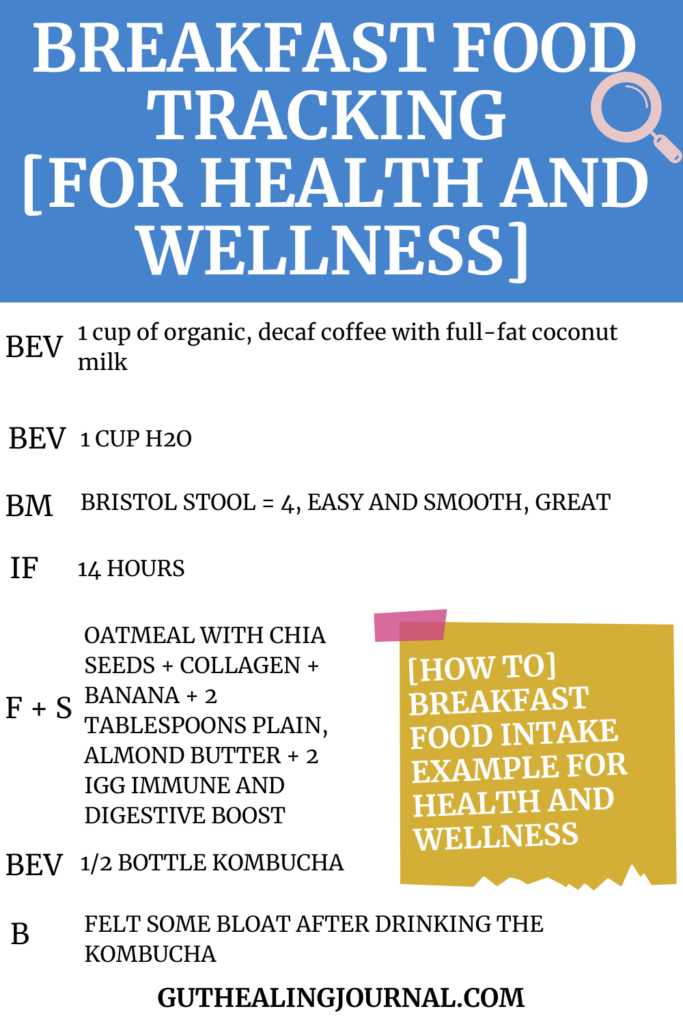
Note: The standard things that you can track in the 90-day gut healing journal are not shown on this page I made up (i.e. sleep tracker, energy level, mood, water, etc.)
Does Keeping a Food Journal Really Help?
Yes, but only if you do it right.
Let me share my 5 top tips for keeping a food journal and having it matter for your health and wellness.
1. Quantity matters
Be sure to list the amount of food and drink you’re consuming at each meal.
I didn’t say, “calories and fat.” I said amounts.
For example, 1/2 cup of cooked oatmeal with 2 tablespoons chia seeds. (No, I didn’t do that in my example for those in particular because I have the same every single time. You can only do that once you’ve been tracking for long enough.)
Quantity matters, especially if you might be dealing with something like SIBO.
2. Ingredients matter
When people first start using my journal and read then re-read my information on ingredients vs ingredient(s) they are usually surprised by what they find. You absolutely, positively must write down the type of food and drink.
Be as specific as you can. If your canned beans contain 7 ingredients, write them down.
Yes, all of them! At least in the beginning.
3. Extras also matter
Don’t forget to write down extras, such as sauces, toppings, dressings, and/or other condiments.
Love pairing eggs with ketchup, but forgetting to include ketchup as part of the breakfast? Don’t.
It might matter. It might also not, but again, in the beginning, write it all down.
4. Little things add up
The non-food-related little things add up.
Be sure you’re keeping track of the time of day when you’re eating, drinking, and resting from it all.
Keep notes around meals of where you’re eating and drinking, with whom, what the scene is like (aka. I was so stressed eating this dinner tonight because I took too much work thinking home with me.)
Anything and everything you can think of.
Nothing is too insignificant.
5. Record right away
I made the 90-day gut healing journal a size that fits in most women’s purses, laptop cases, and/or backpacks.
This is because I want you to take it with you everywhere.
And don’t worry, the cover says, “Healing Blooms Within” because I didn’t want you to take it out at a fancy restaurant and have someone see, “My Ultra-Smooth Poop Journal” written on top.
Don’t rely on your memory at the end of the day. Record those details as you go.
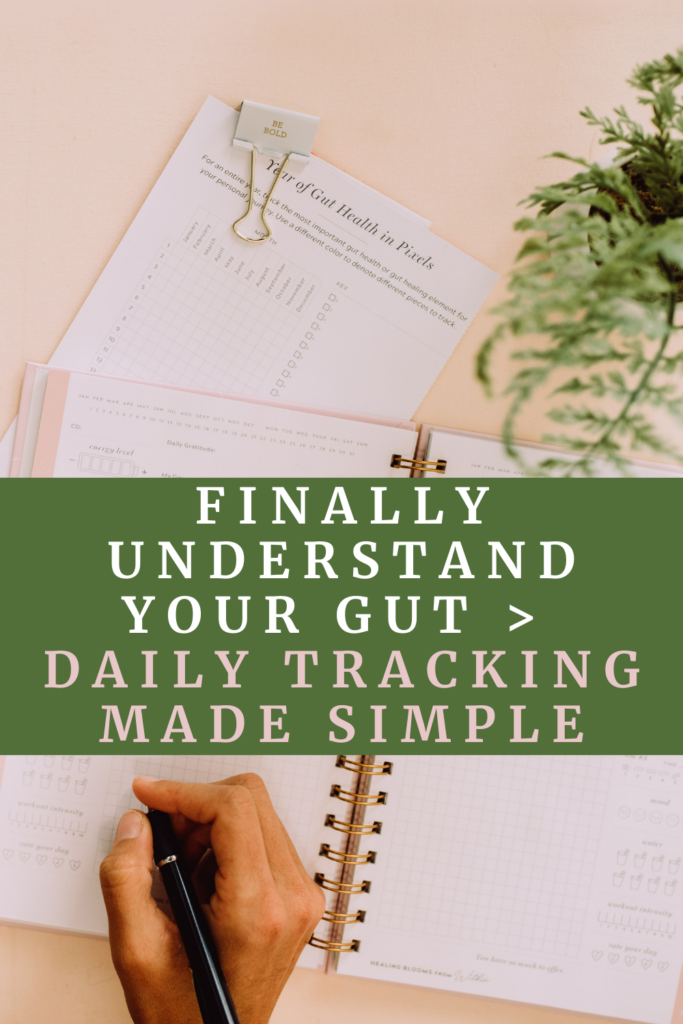


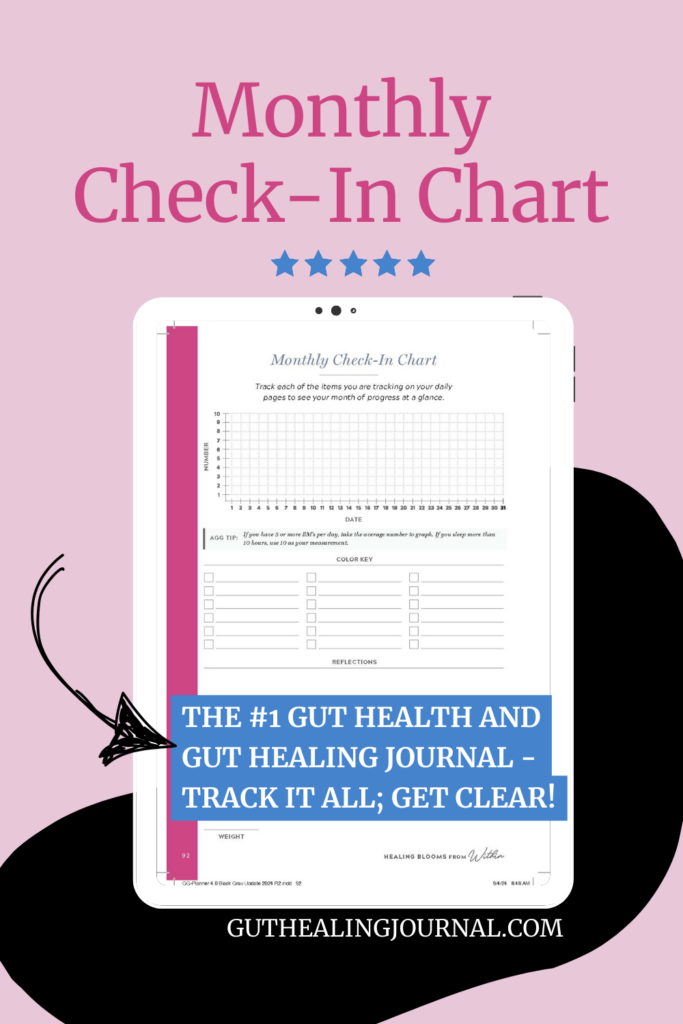
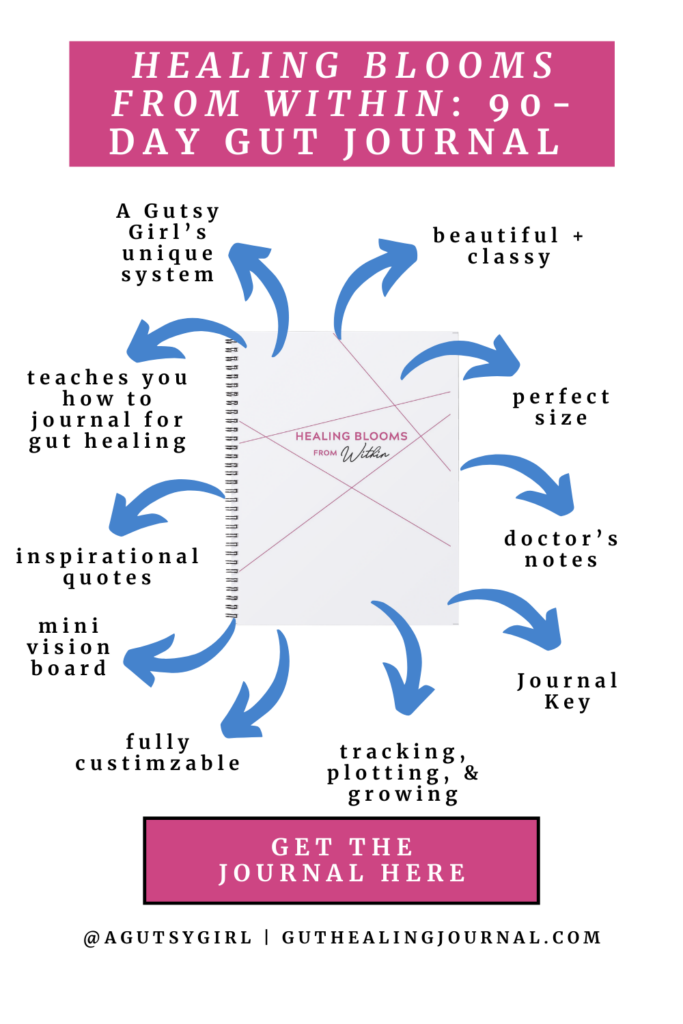
What Can You Learn from Tracking Your Food?
Anything and everything.
Honestly, why do you think I’m so passionate about it and talk about it at length?
But there is a caveat, when you use your food tracking journal, you must be sure you’re being honest with yourself. No one but you has to see what you’re eating, doing, taking, and how you’re living in general.
For best results, especially if you think there is something more severe going on with your gut and/or overall health, you will use your food tracking journal in conjunction with a medical professional.
My journal is conducive for this.
So here are 8 specific things you can learn from tracking your food:
- Foods that are causing you to be symptomatic
- Eating too little (yes, I’m saying this instead of eating too much – more likely that you’re not eating enough)
- Not enough enough nutrient dense foods (and with gut issues you need them more than the average female; iron, zinc, magnesium, Vitamin C, etc?!)
- Not staying properly hydrated
- Which foods are causing weight gain and inflammation and/or weight loss and inflammation
- The amount of ingredients that are actually in packaged foods
- How sometimes how you eat is affecting you more than what you are eating
- Boredom snacking vs true hunger signals
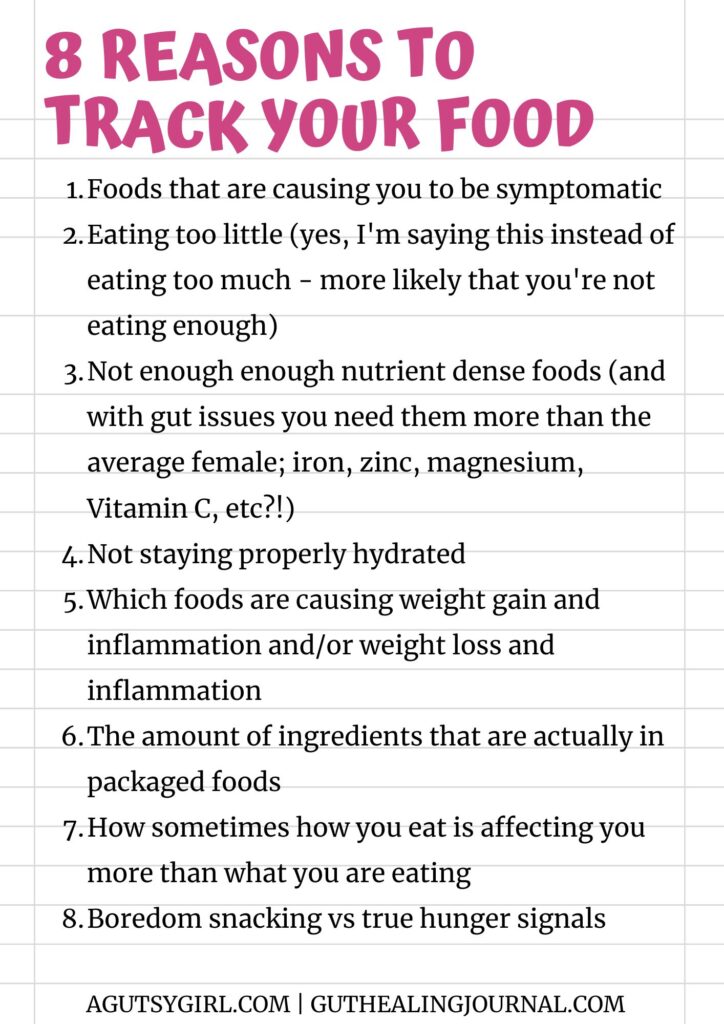
And all of those lead to you being able to answer this one, highly important question,
Is my diet conducive for gut health and gut healing? And is it what I thought?
So often, we think we’re “doing all the right things.”
But then, we keep a food journal for even a week and see we were so off from what we’ve been telling ourselves and our doctors for years.
I can’t tell you how often that happened to me during my journey.
- Check. Drinking enough water.
- Another check. Not eating dairy.
- Check, check. No stress.
But I was wrong, and lying to myself (not even intentionally). I could only see it with honest food journal tracking.
Start Food Tracking Today
…..and do it for health and wellness.
You deserve to live a healthy and vibrant life where you’re thriving.
Weighing less might only see you to that, weighing less. Many times it comes with a price tag.
The only price tag for feeling healthy and well, though, is to create a lifestyle that’s in alignment for the things you personally need.
And you get to design it.
Your food tracking journal is just the tool to help.
If you liked this post, you might also enjoy:
Xox,
SKH
🤰 bloating be gone! weight loss through optimal gut health for women
💃ʜᴇᴀʟ ʏᴏᴜʀ ɢᴜᴛ. ʜᴇᴀʟ ʏᴏᴜʀ ʟɪfe.
🫶🏻 founder gutbyome.com

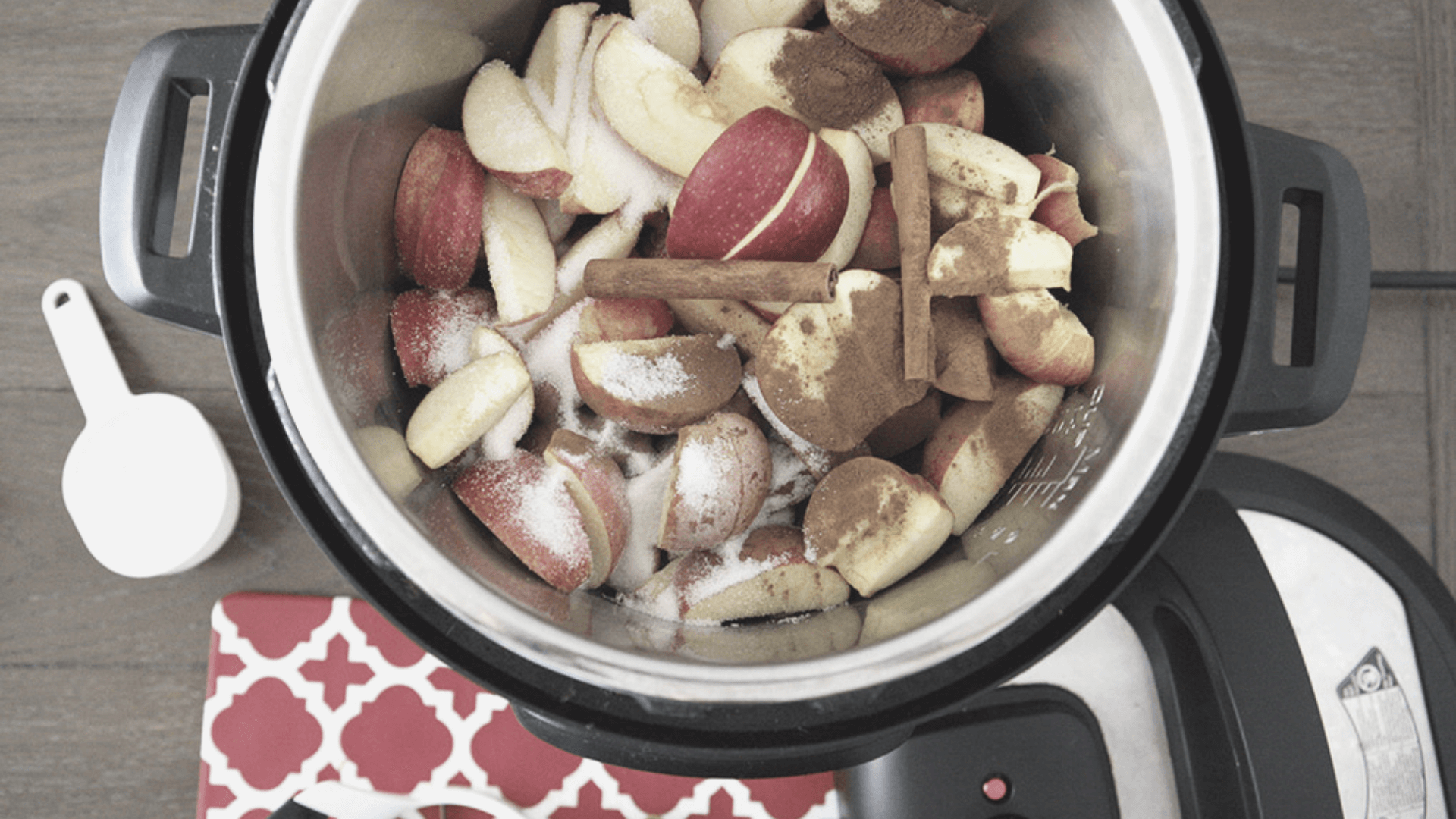

![Gut Cleanse [and 22 Gut Healthy Foods]](https://agutsygirl.com/wp-content/uploads/2021/01/healthy-food-featured-agutsygirl.com_.png)
